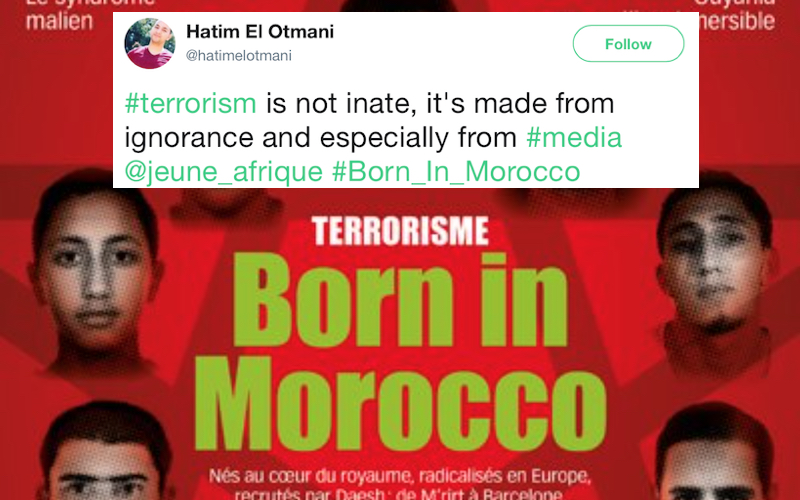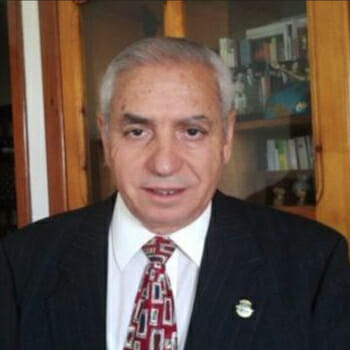
On the Radicalization of Young Moroccans
In recent years, young second and third generation Moroccans from the diaspora have been involved in acts of violence and terrorism in Europe to such an extent that the media has focused on this phenomenon in an attempt to understand why this is happening despite Morocco being one of the few countries of the MENA region that enjoys lasting political stability referred to as: the “Moroccan exception,” exemplary religious tolerance and incredible hospitality and openness towards the other. Not to forget that Morocco has, for a long time, been diligently fighting terrorism, with much firmness and determination on its own soil and also helping actively friendly European countries, in this area.
Youth abandoned and marginalized
Following the attacks in Barcelona and Cambrils, the magazine Jeune Afrique devoted the cover of its 27 August 2017 issue to the involvement of Moroccans of the diaspora in acts of terrorism, with an accusing and unfair title: “Terrorism: Born in Morocco.” The article provoked a lot of criticism and anger in Morocco because the adjective “Moroccan” was misused for sensational purposes.
These young lone wolves are, of course of Moroccan origin but Morocco as a country has nothing to do with their radicalization. Their radicalization took place in Europe exclusively, so the countries of Europe are responsible for their actions, for several reasons: cultural and professional marginalization; ghettoization; incessant stigmatization; latent and harmful racism; Islamophobia; and conflicts of generations with their generally authoritarian and patriarchal parents.
Alas, today, siblings of Moroccan migrants are emotionally alone, psychologically bruised and totally destabilized. They feel they belong to neither their country of origin and extraction, nor to their country of adoption and birth, so, in principle, they have become easy prey for religious radicalization by brainwashing undertaken by international Islamist master terrorists.
Indeed, since the establishment of Jihad in Afghanistan in 1980s, to drive the Soviets out of this Muslim country, many religious organizations have taken upon themselves the recovery of such “abandoned” youth, branded by their countries of origin as “black sheep.”
Emasculated Amazigh youth
In 1950’s Europe, in full reconstruction thanks to the American largesse of the Marshall Plan, was in great need of strong arms for rebuilding. Once again, after the recruitment of the Amazighs (Berbers) of North Africa into European armies to defend it against Nazism, the old continent turned to this people for its reconstruction. Thus, recruiters criss-crossed the mountains of North Africa in search of young, healthy and strong Amazigh males, renowned for their stamina and seriousness. The majority were illiterate and many spoke only a Amazigh language.
On arrival in Europe, they were first housed in ghettos and a few years later they returned home on vacation, with money and gifts, and spoke generously of “the European Eldorado,” arousing the admiration and jealousy of those who remained behind, who in turn, did everything possible to immigrate to Europe, to share in its “boundless wealth and bounty.” In some clans of the Rif, like Iherassen of the Gzennaya tribe, given the difficulty of acquiring a passport minted by corrupt officials, dozens of Rifian males, sporting the same surname used the same passport by changing the photo to immigrate to the “European paradise.” The European governments, aware of this illegal practice, closed their eyes because they greatly needed this cheap workforce for their thriving economy.
To better accommodate its immigrants, Europe made it possible in the 1970’s, for family repatriation. Thus, young people were born on European soil and grew up in liberal democracies. Some took the opportunity to study and become executives, but many took the wrong path: drug-selling, pick pocketing, petty crime, fraud, organized crime, etc. after which they were arrested several times by the police and charged. In the long run, these youngsters became black sheep and, unlike their relatives attached to their country of origin and its culture and values, they, on the contrary, have had a great problem of identity and belonging. Feeling totally isolated from their too traditional families and their European country of birth.
Thus, these culturally and psychologically traumatized youth became easy prey to Islamist terrorist centers of Wahhabi inspiration and religious ideology, having generous access to the petrodollars of the Gulf countries. Once in the arms of these master terrorists and “merchants of violent death,” wrapped in a disfigured and violent version of Islam, they were gratified by easy money and comfortable identity sought after and desired, with, as a bonus, the tempting promise of paradise and its innumerable delights and creature comforts.
Media amalgam
Many media outlets in Western countries that have Islamophobic tendencies and driven by journalistic sensationalism have linked these young victims of terrorism and Islamism to their country of cultural origin: Morocco.
For example, a journalist named Leela Jacinto penned a misleading article entitled “Morocco’s outlaw country is the heartland of global terrorism,” published on 7 April 2016 by the very serious US electronic magazine: Foreign Policy and picked up the next day by the Chicago Tribune newspaper.
This journalist traveled through Morocco hastily and had literally no basic knowledge of Amazigh culture imbued with tolerance, respect for the other and a sense of cohabitation, for the last 5,000 years. She reached a hurried and an undocumented conclusion that the Moroccan Rif is undeniably the heart of global terrorism, for the simple reason that the terrorist apprentices of ISIS, in recent years in Europe, trace their origin to the Rif, but were born and raised in Europe. However, one wonders how, logically speaking, can one condemn a country of origin for the violent behavior of people whose parents are from that country but are themselves physically born and bred in European countries?
International praise
For some time, the American government has praised Morocco for its incessant efforts and actions in fighting global terrorism. The reports praise King Mohammed VI’s actions and policies in this field as recently described by the Director of the UN Counter-Terrorism Centre (UNCCT), Jehangir Khan, told MAP (Moroccan press agency) on the sidelines of the 9th meeting of the Coordination Committee of the Global Forum for the Fight against Terrorism (GCTF), held in The Hague.
One wonders how Morocco can be a “heartland of global terrorism.” It does not make sense at all. It is either a gross misconception or just sensational journalism on the part of Foreign Policy and Jeune Afrique.
European politicians have always preached multiculturalism and integration, but, alas, this was just empty talk because Muslims all over Europe have felt marginalized on the grounds of their culture and creed and, consequently, Muslim youth became easy prey for religious radicals such as al-Qaeda or ISIS.
The existence, today, of the French cités, banlieues, Molenbeek in Belgium and various ghettos throughout Europe and the past unfortunate terrorist attacks in Belgium and several other European cities commandeered by ISIS and other terrorist groups is sound proof that Europe has failed miserably its melting pot test and integration policies.
Realizing that the French policy on the integration of Muslims has been a total fiasco, ex-French Prime Minster Valls accompanied by 11 ministers of his cabinet visited Vaulx-en-Velin in Rhones, where in 1990 riots erupted as a result of discrimination and following that the French government created the “Ministère de la Ville” to bring economic relief to the ghettos. But almost three decades later, unemployment is still high among youth, indeed half of 25 years old young people are jobless, which means that the apartheid system denounced by ex-French Prime Minister Valls on January 2015, following, the Charlie Hebdo terrorist attacks, in such strong words as: “l’apartheid territorial, social et ethnique,” is still very strong.
Final word
Radical Islamist terrorism inflicted on Europe since the Madrid 2004 events is homegrown and the countries of origin of fathers and grandfathers of the perpetrators cannot in no way be made responsible directly or indirectly for their condemnable and ignoble acts.
This misbehavior on the part of Muslim youth is the result of their marginalization in their countries of birth and non-adoption because of their culture, creed and color and it is the responsibility of European governments to have more inclusive policies vis-à-vis their citizens, whoever they are.
These terrible terrorist attacks are a wake-up call to heed with attention and responsibility and act at once.

